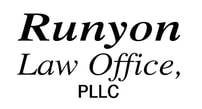Time for a Trust Tune-up?
There is at least one tax planning opportunity here, however, and I'll try to explain it as simply as possible. When a person dies, the values of the estate assets get "stepped up" to their date-of-death values. So even if you bought Apple when it was $10, and it's $400 when you die (I could have said $700 a few months ago), all the potential capital gains tax that would ordinarily be due on a sale gets wiped out, and the tax is figured on $400 per share instead of $10.
The problem is that much estate tax planning was done when the exemption amounts were much lower, say, $500,000, and people's trusts were structured on that basis. That kind of planning has been turned on its head now, and while those trusts don't cause any estate tax harm under the new rules, they don't help with capital gains taxes nearly as much as they could.
Here goes a simple example. Let's say the Apple stock was at $400 when you died, and your estate got the "step-up" in value to that amount. Then, by the time your spouse died after 20 more years, the Apple was at $1,000. If your trust was set up the way most are now, the kids would pay a capital gains tax on the difference between $400 and $1,000 when they eventually sold the Apple at your spouse's death. That's because there wouldn't be another "step-up" up in value at that point. If the trusts were revised, however, the stock could qualify for another "step-up" and all the capital gains tax could be saved to pay for something a lot more enjoyable. Let us know if we can help.
(Posted 05/02/2013)
